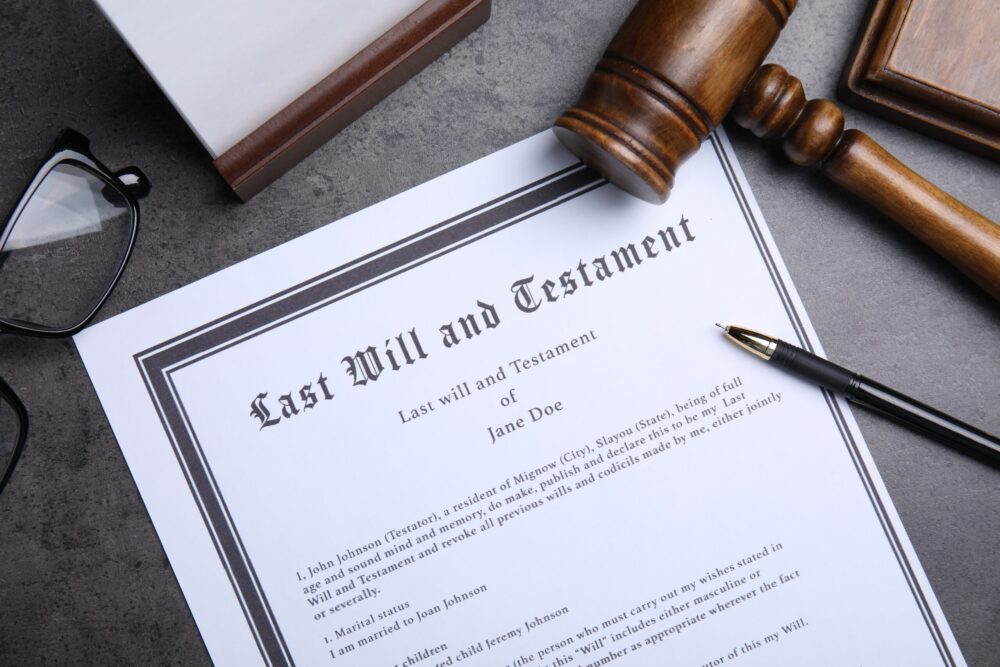
Contesting a Will : Exploring The Reasons
When you Contest a Will, it is a legal process that allows individuals to challenge the validity or fairness of a Will.
There are several reasons why someone may choose to contest a will. This post aims to highlight some of the most common reasons, or grounds, for challenging or contesting a Will and shed light on the legal considerations surrounding these reasons.
For the sake of clarity, we use the term “testator” frequently in this post. Simply put, the “testator” is the legal term for the person who makes the Will, and then is deceased.
1. Lack of Testamentary Capacity
One of the primary reasons to contest a Will is to challenge the testator’s testamentary capacity. Testamentary capacity refers to an individual’s mental ability to understand the nature and consequences of their actions when making a Will. For example, if it can be proven that the testator (person who made the Will) lacked the mental capacity or ability to understand the value of their assets, comprehend the consequences of their decisions, or comprehend the individuals who should be beneficiaries, the Will can be contested.
2. Undue Influence
Undue influence occurs when a person exerts pressure or manipulates the testator into making decisions that benefit them unfairly. Challenging a Will on the grounds of undue influence involves demonstrating that the testator (person who made the Will) was coerced, threatened, or manipulated by another person, leading to changes in the distribution of assets in the Will that the testator would not have made except for the fact that they were “forced” or “coerced” to do so. It is essential to provide evidence to substantiate claims of undue influence, such as showing a relationship of dominance or control and the testator’s vulnerability.
3. Fraud or Forgery:
If there is evidence that the Will was fraudulently created or forged, it can be contested. Contesting a Will on these grounds requires proving that the testator’s signature was forged, the Will was altered without their knowledge, or false information was provided to deceive the testator (the person who made the Will). It is crucial to gather substantial evidence, such as handwriting analysis or witness testimonies, to support these claims.
4. Improper Execution:
Under British Columbia law, a Will must meet specific requirements to be considered valid. If a Will fails to meet these formalities, it can be contested on the grounds of improper execution. Some examples of improper execution include not having the Will signed by the testator (the person who made the Will) plus two witnesses, or the testator not being present during the signing of the Will. Contesting a Will based on improper execution necessitates proving that the document does not meet the legal requirements, rendering it invalid.
5. Rectification and Interpretation:
In some cases, a Will may contain ambiguous or contradictory provisions that require interpretation. Contesting a Will to seek rectification or interpretation involves applying to the court to clarify the testator’s true intentions or correct any language or drafting errors. This process aims to ensure that the testator’s wishes are accurately reflected and that the Will is administered accordingly.
Contesting a Will can be a complex and challenging process. Whether it is due to lack of testamentary capacity, undue influence, fraud or forgery, improper execution, or the need for rectification and interpretation, individuals may have any number of valid reasons to contest a Will. It is crucial to consult with an experienced lawyer specializing in estate litigation to navigate this legal process effectively. By understanding the grounds for contesting a will, individuals can seek justice and ensure that the testator’s true intentions are honoured.
The process of Challenging or Contesting a Will frequently starts with the Courts, however this can be an extremely expensive, inefficient, time consuming, highly toxic, and very public process.
Alternatively, using Out-Of-Court Mediation or Arbitration, to resolve Wills and Estate Disputes is 100% private, significantly faster, considerably less expensive, much less toxic, and it creates far better outcomes for all concerned .
ClearView Conflict Resolution offers a full spectrum of professional, accredited, Mediation and Arbitration services to help you resolve your Wills and Estate Disputes “out-of-court.”
Contact us today for a free, no obligation, initial consultation.
